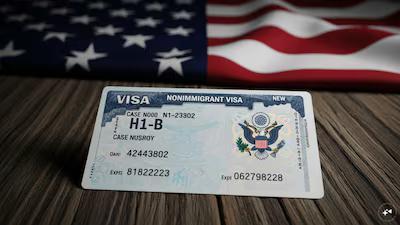
Trump’s Travel Ban on 12 Countries’ Citizens Takes Effect
As of Monday, a complete travel ban has been enforced by the United States government on citizens of 12 countries, amidst growing concerns about national security. The ban applies to nationals from Afghanistan, Congo-Brazzaville, Chad, Eritrea, Equatorial Guinea, Haiti, Iran, Libya, Myanmar, Somalia, Sudan, and Yemen, restricting their entry into the US.
This development is part of a broader effort by the Trump administration to tighten immigration rules and strengthen national security measures. The ban is aimed at ensuring that visitors and immigrants to the US pose no threat to the country’s safety and security.
What does the travel ban entail?
According to the latest announcements, citizens from the 12 listed countries will be subject to restrictions on entering the US. The ban does not apply to individuals who have already obtained a valid visa or have a valid electronic system for travel authorization (ESTA). However, even those who have a valid visa or ESTA may still be subject to additional screening and questioning upon arrival in the US.
It is important to note that the travel ban does not apply to dual nationals, who hold citizenship in one of the restricted countries and another country that is not on the list. In such cases, the individual’s non-restricted citizenship will be taken into account when determining their eligibility to enter the US.
Why has the travel ban been implemented?
The Trump administration has cited national security concerns as the primary reason for the travel ban. According to sources, the ban is aimed at preventing individuals who may pose a threat to the US from entering the country. This includes individuals who have been deemed to be a risk to the national security of the US, or those who have been involved in terrorist activities or other harmful behavior.
Which countries are affected?
The list of restricted countries includes:
- Afghanistan
- Congo-Brazzaville
- Chad
- Eritrea
- Equatorial Guinea
- Haiti
- Iran
- Libya
- Myanmar (also known as Burma)
- Somalia
- Sudan
- Yemen
What are the implications of the travel ban?
The travel ban is expected to have significant implications for individuals and families affected by the restrictions. For those who had planned to travel to the US or had already made arrangements, the ban will require them to re-evaluate their travel plans and potentially seek alternative arrangements.
The ban may also have a significant impact on diplomatic relations between the US and the affected countries. It is likely that the ban will be met with criticism and opposition from governments and individuals in the affected countries, who may view the restrictions as discriminatory or unfair.
Conclusion
The travel ban on citizens of 12 countries has taken effect, marking a significant development in the Trump administration’s efforts to strengthen national security measures. While the ban is aimed at preventing individuals who may pose a threat to the US from entering the country, it is likely to have significant implications for individuals and families affected by the restrictions.
As the situation continues to unfold, it is important to stay informed and up-to-date on the latest developments. For more information on the travel ban and its implications, please visit the official government websites or consult with a qualified immigration attorney.






